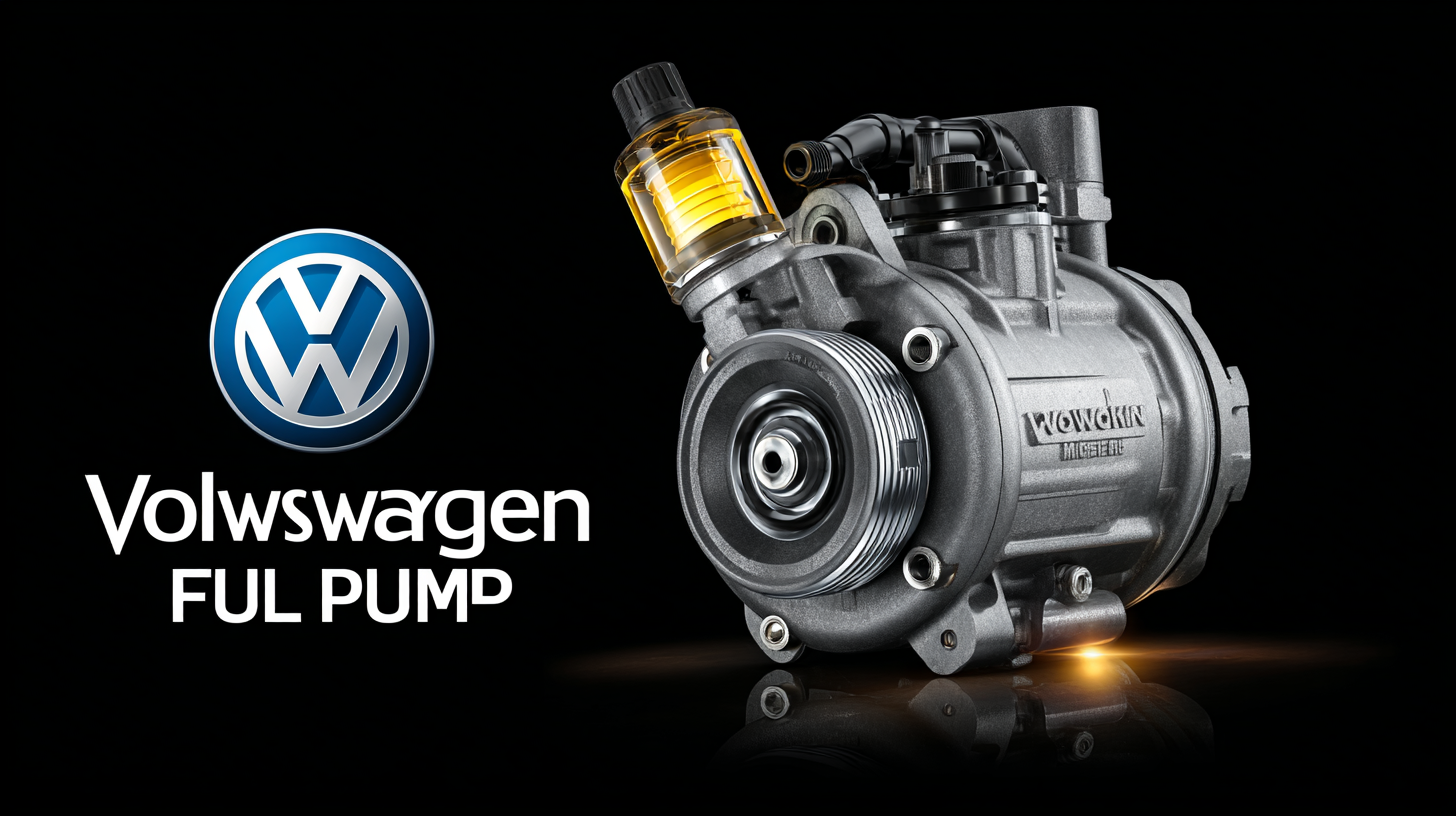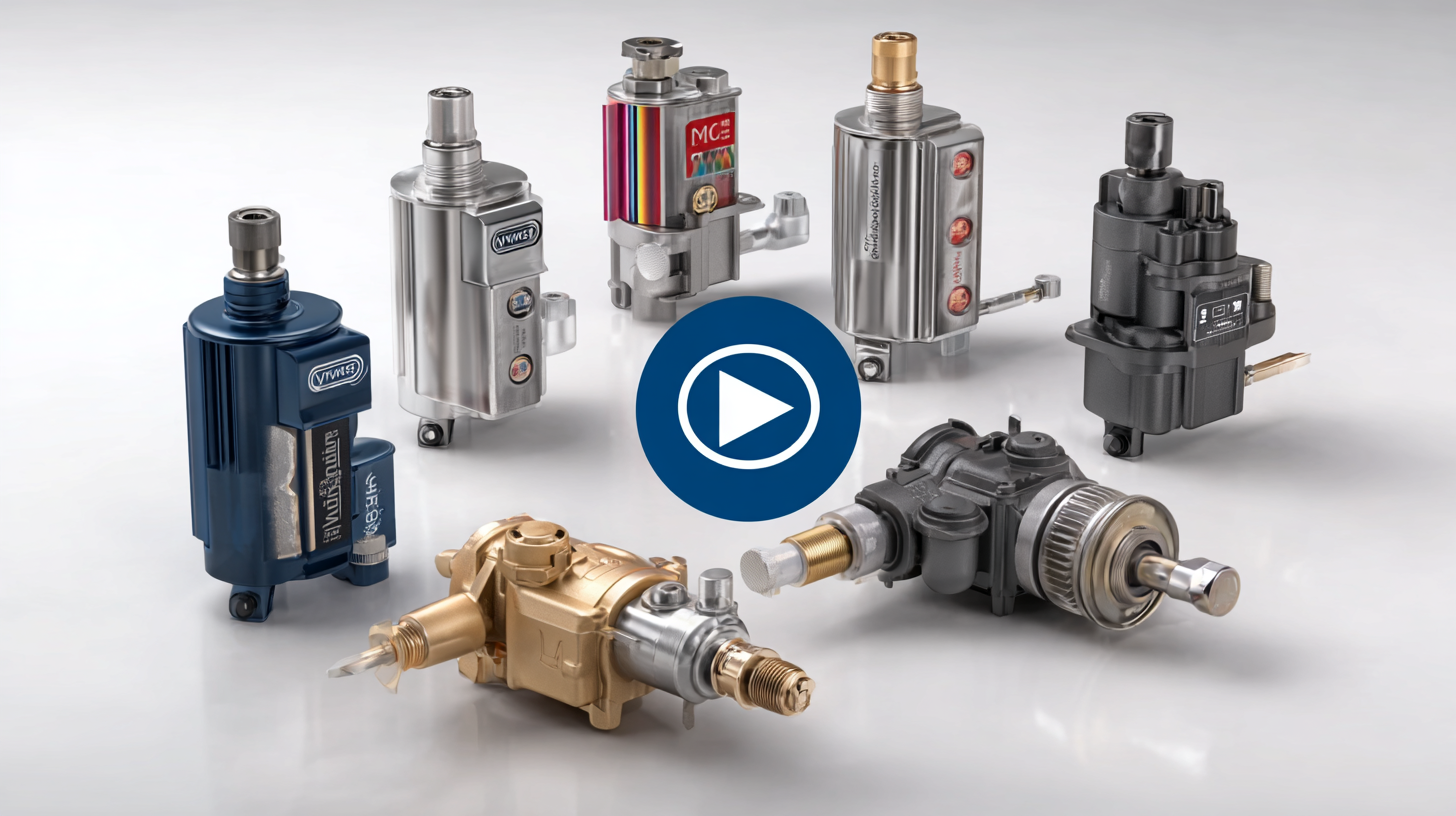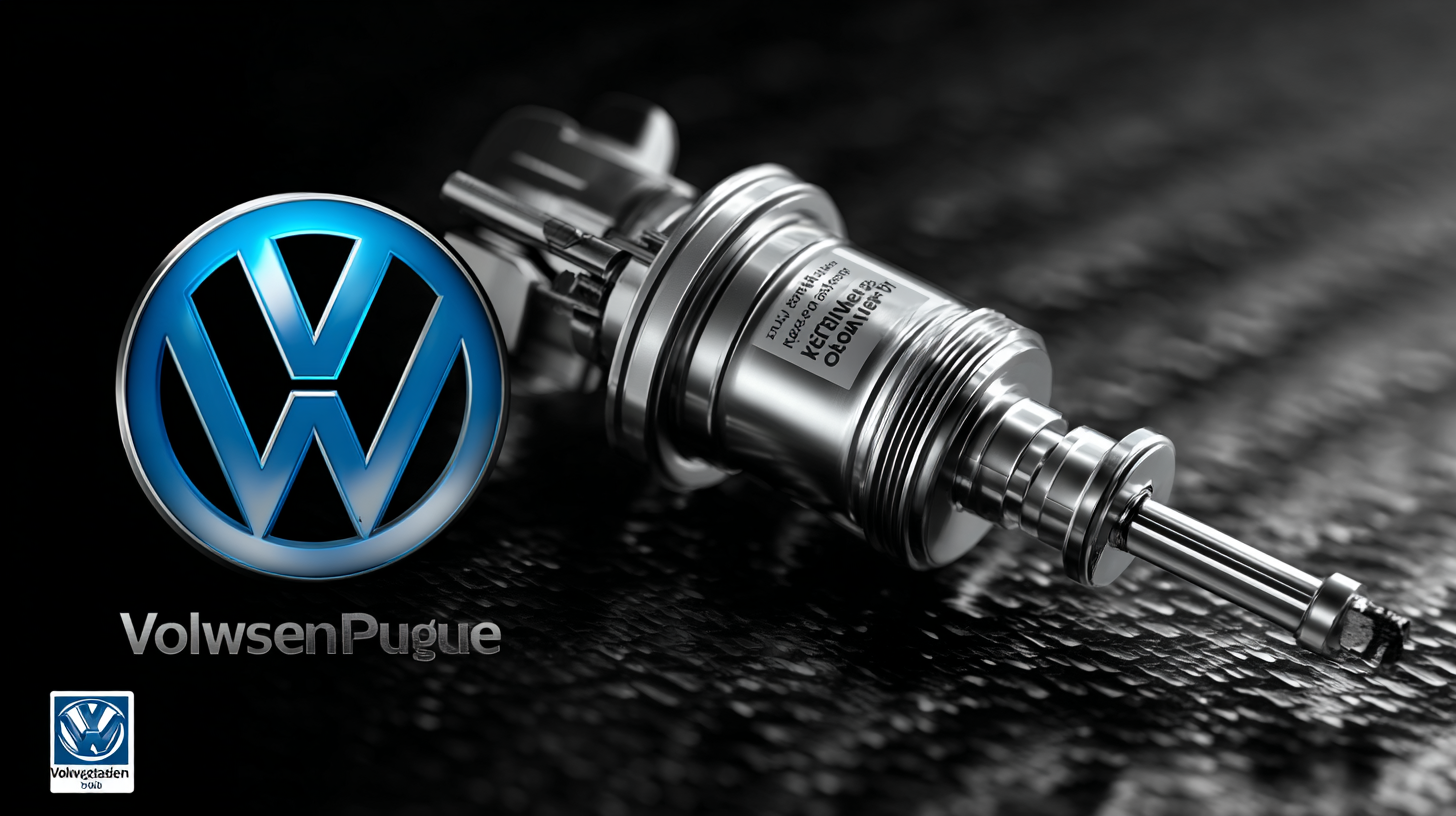
In the ever-evolving automotive industry, selecting the right components for optimal vehicle performance is paramount, particularly when it comes to critical parts like the Volkswagen Fuel Pump. According to a report by MarketsandMarkets, the global automotive fuel pump market is expected to grow from USD 8.1 billion in 2020 to USD 11.5 billion by 2025, highlighting the increasing importance of fuel delivery systems in modern vehicles. The Volkswagen Fuel Pump plays a pivotal role in maintaining engine efficiency, enhancing fuel economy, and ensuring the smooth operation of your engine. With various alternatives available on the market, it's crucial for car enthusiasts and owners to make informed decisions that align with their vehicle's needs. This blog will guide you through the process of choosing the best Volkswagen Fuel Pump, considering the important factors and the benefits that quality alternatives can bring for your vehicle's performance.

When it comes to optimal engine performance, selecting a high-quality fuel pump for your Volkswagen is crucial. A fuel pump's primary responsibility is to deliver a consistent supply of fuel to the engine, maintaining the appropriate pressure for efficient combustion. If the fuel pump fails or performs poorly, it can lead to various issues, such as decreased engine power, poor fuel efficiency, and even stalling. Therefore, investing in a reliable fuel pump is essential for both the longevity of your vehicle and the smooth operation of your engine.
Understanding the types of fuel pumps available for Volkswagen vehicles is key to making the right choice. OEM (Original Equipment Manufacturer) pumps are designed specifically for your vehicle model, ensuring a perfect fit and compatibility. Aftermarket options can also provide quality alternatives, but it's imperative to choose reputable brands that meet or exceed OEM specifications. Additionally, consider factors such as the pump's flow rate, durability, and warranty. A high-quality pump not only enhances performance but can also save you money in the long run by reducing maintenance costs and prolonging engine life.
This chart illustrates the relationship between fuel pump quality and engine performance metrics, highlighting the importance of selecting a high-quality fuel pump for optimal vehicle operation.
 Choosing the right fuel pump for your Volkswagen is essential for maintaining optimal performance and efficiency. When selecting a fuel pump, one of the primary factors to consider is the specifications of the pump itself. Look for details such as flow rate, fuel pressure, and power consumption. These specifications must match the requirements of your specific Volkswagen model; otherwise, you may experience diminished performance or even engine damage. Always refer to your vehicle's manual or consult with a professional mechanic to determine the appropriate specifications for your engine's needs.
Choosing the right fuel pump for your Volkswagen is essential for maintaining optimal performance and efficiency. When selecting a fuel pump, one of the primary factors to consider is the specifications of the pump itself. Look for details such as flow rate, fuel pressure, and power consumption. These specifications must match the requirements of your specific Volkswagen model; otherwise, you may experience diminished performance or even engine damage. Always refer to your vehicle's manual or consult with a professional mechanic to determine the appropriate specifications for your engine's needs.
Another critical consideration is compatibility with your vehicle's existing fuel system. Not all fuel pumps are designed to work seamlessly with every Volkswagen model. It's vital to ensure that the pump you choose is compatible in terms of connectors, mounting, and overall design. Using an incompatible pump can lead to installation challenges and may compromise the reliability of your engine. Furthermore, opting for OEM (original equipment manufacturer) parts can provide peace of mind, as they are specifically designed to meet the standards and performance of your Volkswagen.
When selecting a fuel pump for your Volkswagen, understanding the differences between OEM (Original Equipment Manufacturer) and aftermarket options is crucial for optimizing your vehicle's performance. OEM fuel pumps are designed by the vehicle manufacturer, ensuring perfect compatibility and reliability. They often come with a higher price tag, but you can trust that they meet stringent quality and performance standards specific to your Volkswagen.
On the other hand, aftermarket fuel pumps offer a more budget-friendly alternative, with a variety of brands and models available in the market. These pumps may deliver comparable performance at a lower cost, but it's essential to research and choose reputable brands to avoid potential quality issues. Some aftermarket options even boast advanced features or higher performance ratings, making them an attractive choice for enthusiasts looking to enhance their vehicle's capabilities.
Ultimately, the decision between OEM and aftermarket will depend on your budget, performance goals, and comfort with the product's reliability.
When it comes to maintaining your Volkswagen, one of the most crucial components to consider is the fuel pump. A high-performance fuel pump is vital not only for the engine's efficiency but also for meeting emissions standards. The fuel pump plays a critical role in delivering the right amount of fuel to the engine at the appropriate pressure, ensuring optimal combustion. When the fuel pump is functioning effectively, it maximizes fuel efficiency, reducing waste and contributing to lower emissions.

On the other hand, a poorly performing fuel pump can lead to a host of issues. Inadequate fuel delivery can cause the engine to run lean, resulting in incomplete combustion. This not only affects the vehicle's performance – leading to rough idling, stalling, or difficulty starting – but also increases harmful emissions. By investing in a high-quality fuel pump that matches Volkswagen's specifications, drivers can ensure their vehicle runs efficiently while also adhering to increasingly strict emissions regulations. Prioritizing the selection of the best fuel pump fosters both peak engine performance and environmental responsibility.
Maintaining your Volkswagen fuel pump is crucial for ensuring optimal performance and longevity. According to a report by the Automotive Aftermarket Industry Association, regular maintenance on fuel pumps can extend their lifespan by up to 30%. It’s essential to keep the fuel system clean, as contaminants can lead to pump failure and decreased efficiency. Performing routine inspections and replacing fuel filters can significantly reduce the strain on your fuel pump, allowing it to operate at peak performance.
Additionally, experts recommend checking for signs of wear or leaks regularly. A study from the Society of Automotive Engineers indicates that neglecting early signs of fuel pump issues can lead to failure rates increasing by 50% over time. Keeping an eye on your fuel system's condition and responding promptly to any changes can prevent unexpected breakdowns and costly repairs. Implementing these maintenance tips not only enhances your vehicle's performance but also contributes to a more environmentally friendly drive by ensuring the fuel system operates efficiently.
